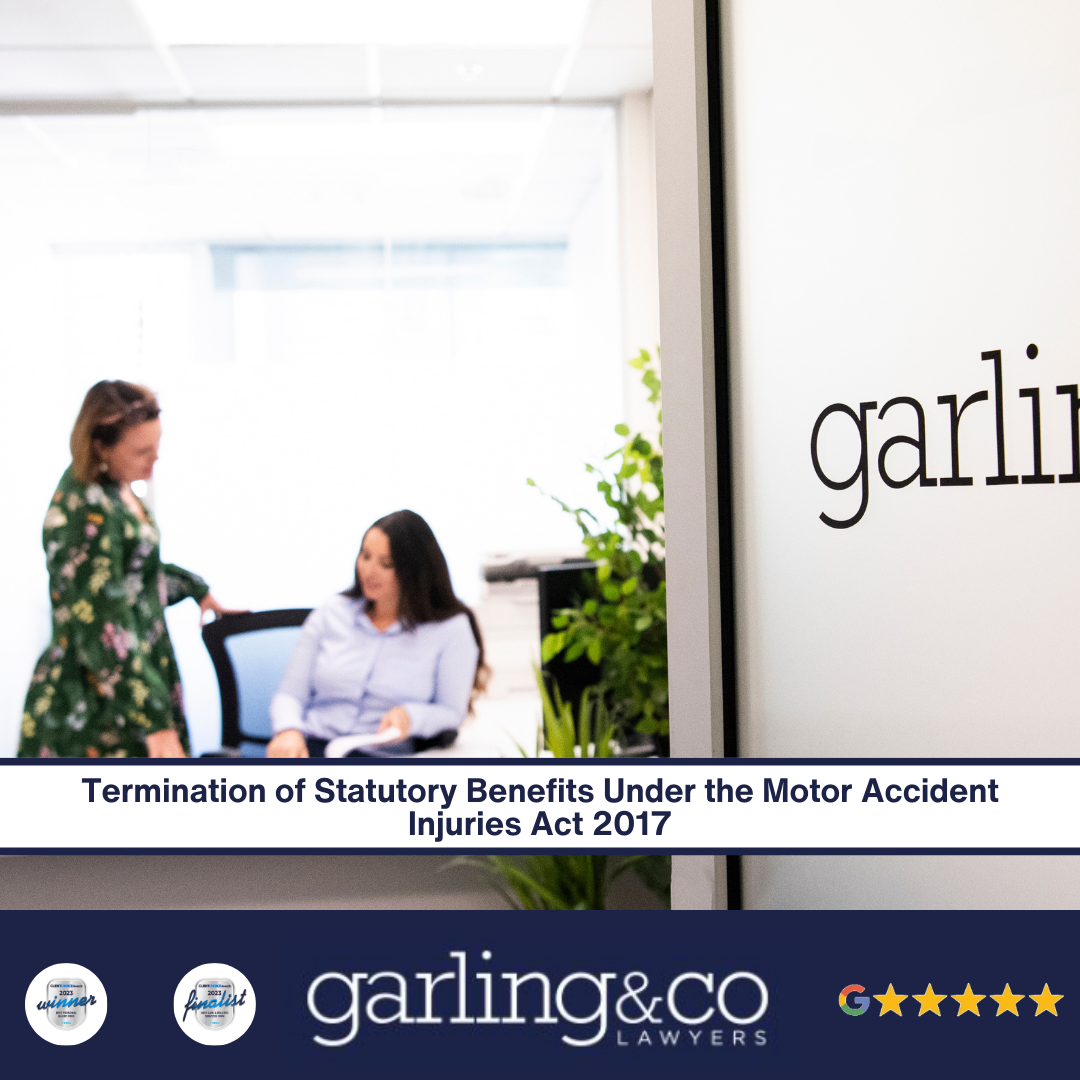
Statutory benefits are payable for 26 weeks and include payment of weekly compensation if you are unfit for work and payment of reasonable and necessary medical expenses.
Understanding Statutory Benefits
Under the NSW Motor Accident Injuries Act, statutory benefits are financial and support services provided to people injured in motor vehicle accidents. These benefits typically include weekly payments, medical expenses, and rehabilitation costs. Statutory benefits are payable for 26 weeks and include payment of weekly compensation if you are unfit for work and payment of reasonable and necessary medical expenses.
How to make a claim for statutory benefits?
To make a claim for statutory benefits, you need to apply for personal injury benefits by completing an Application for Personal Injury Benefits form and obtain from your doctor a Certificate for Fitness. A claim can be made through the SIRA website.
Lawyers are generally not involved in the initial claim for statutory benefits under the act. There is no allowance for payment of any legal fees to assist a person injured in a motor vehicle accident to make a claim. A claim should be made within 28 days from the date of the motor vehicle accident and the accident must be reported to the police. An entitlement to statutory benefits, therefore, requires no more than for you to have sustained an injury from a motor vehicle accident.
Who Isn’t Eligible for Statutory Benefits?
- Generally, you may not be eligible for statutory benefits if:
- The accident occurred outside of NSW: The Act specifically applies to accidents within New South Wales.
- The accident didn’t involve a motor vehicle: The benefits are tied to injuries sustained in motor vehicle accidents.
- The injury doesn’t meet the definition of a personal injury: The Act focuses on physical or mental harm caused by a motor accident.
- You’re the sole person at fault for the accident: While this doesn’t necessarily disqualify you entirely, it can impact the amount of benefits you receive.
- You’ve intentionally caused the accident: Deliberately causing an accident would likely prevent eligibility.
- You’ve made a fraudulent claim: Providing false information to claim benefits can result in ineligibility.
Specific Exclusions and Thresholds
It’s important to note that there might be specific exclusions or thresholds outlined in the Act. For instance, there could be limitations based on the severity of the injury or the circumstances of the accident. To get precise and up-to-date information about your eligibility, it’s highly recommended to consult with a lawyer specialising in motor accident claims.
When do statutory payments cease?
Statutory benefits cease to be payable after 26 weeks if the insurer can prove one of the following:
- That the motor accident was caused wholly or mostly by the fault of the person claiming statutory benefits
- The persons injury resulting from the motor vehicle accident were minor injuries.
If the accident was your fault payments will cease after 26 weeks. A motor accident is deemed to have been caused mostly by the fault of a person if the contributory negligence of that person is greater than 61%. An insurer, therefore, can only terminate statutory benefits if it has evidence to satisfy one of the above two matters. If an insurer does not investigate liability and has no information about liability or the injury, then the insurer cannot discontinue statutory benefits.
The insurer within the 26 week period should conduct an investigation in relation to the accident to determine whether the person who is claiming statutory benefits was wholly or mostly at fault and whether or not the injuries resulting from the motor vehicle accident were minor injuries. The insurer is then required to make a decision within the 26 weeks as to whether they will cease payment of statutory benefits.
Insurers have been making decisions to cease benefits without making proper investigations on either liability or whether someone has a minor injury. The onus is on the CTP insurer to positively prove that the person claiming statutory benefits was at fault or to positively prove that the person who is claiming statutory benefits has a minor injury. The injured person does not need to prove the above matters but rather it is the CTP insurer who bears that onus.
An injured person is however required to co-operate in providing information to the insurer as requested to assist them in their determination. Any decision made by the CTP insurer to cease benefits after 26 weeks can be challenged.
If you believe that you are entitled to ongoing benefits after 26 weeks then you should contact an Accredited Specialist in Personal Injury Law who can review your matter and determine whether you have a right to challenge the insurer’s decision to receive statutory benefits beyond 26 weeks.












